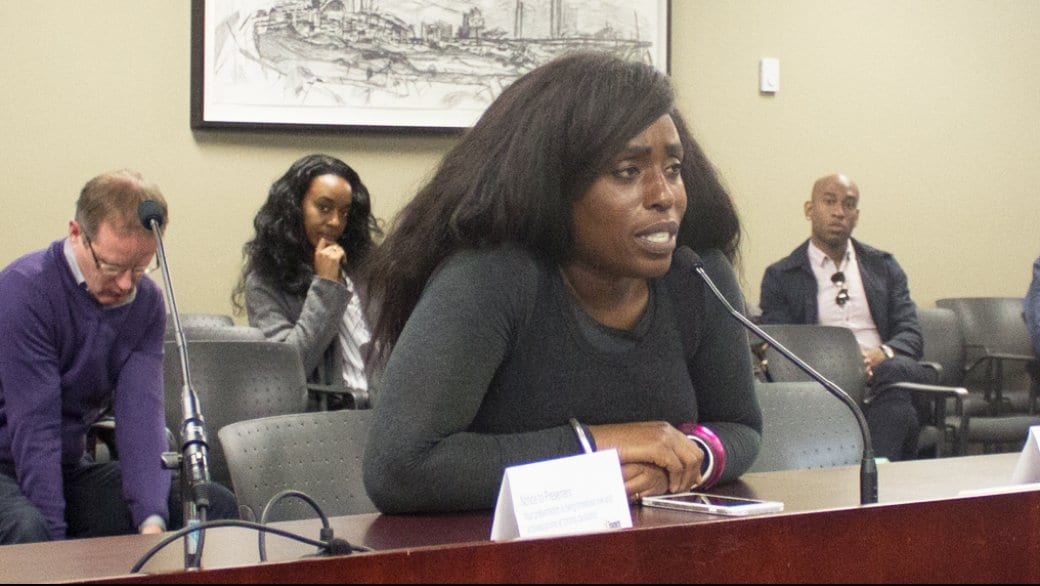Pride Toronto has easily cleared the first hurdle in order to keep its city funding.
On May 8, 2017, Toronto city council’s economic development committee voted unanimously to continue providing Pride Toronto with a quarter-million dollar annual grant.
In what was a contentious meeting that centred around Pride Toronto’s ban on uniformed police officers marching in the parade, even skeptical city councillors voted to continue providing city funds for the festival.
“We are the biggest festival in this country, we bring in the biggest dollar amount into this city,” Olivia Nuamah, executive director of Pride Toronto, told the committee.
Councillor John Campbell has said he will introduce a motion at council to cut off the $260,000 grant that the City of Toronto gives to Pride each year unless police floats are included in the parade. That motion will come on May 24, at the full council meeting.
But during the committee meeting, Nuamah made it clear that police could still march in the parade, as long as they weren’t uniformed, armed or accompanied by vehicles.
“We have never said that the police are banned from our parade,” she said. “That is us as an organization responding to our constituents and suggesting to them that we respect what they think and feel.”
Nuamah gave a full-throated defence of the decision made by Pride’s membership to ban uniformed police from marching.
“We are a queer movement, that means our priority are the LGBTQ+ community,” she said. “And in that, we think it’s important to listen to what every aspect of our community has to say.”
Nuamah also stressed that Pride and the Toronto Police Service are engaged in talks about how police will be able to participate in next year’s parade.
“The most positive aspect of what has happened through this dialogue is the relationship between Pride Toronto and the Toronto Police Service,” she said.
Bryn Hendricks, an LGBT community member who opposes excluding uniformed police from the parade, asked that city council pass a motion asking Pride Toronto to pay for the cost of the police protection for the parade. Currently, the Toronto police provide that for free.
“It is hypocritical on one hand say that we do not want police marching in uniform,” he said, “but that we then are okay with having the police provide security at the same time.”
Earlier in the day, Mayor John Tory reiterated his support for funding Pride Toronto as long as the organization and the Toronto Police Service continue to discuss the role of police in the future.
At the committee meeting, city staff confirmed that Pride Toronto’s stance on police participation doesn’t violate the city’s anti-discrimination policy.
“I’m not supportive of any measures that will penalize an organization that is not breaking any city rules,” said Councillor Michael Thompson, who chairs the committee.
Nuamah told reporters that the current threat to Pride’s funding is not the most serious threat the organization has faced.
“Long before this issue, there was the fight against HIV and AIDS, there was marriage equality, there have been many conversations about the relationship between the queer community and the police,” she said. “So no, we see this as just one in several issues that this community has had to fight for to ensure equal rights for everybody.”

 Why you can trust Xtra
Why you can trust Xtra


